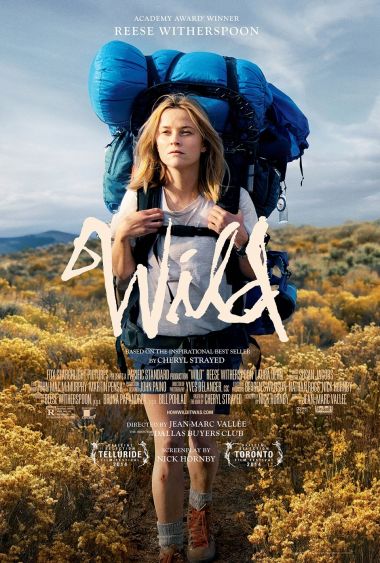Wild: Review

Based on the true story of novelist Cheryl Strayer, Wild documents her fearless trek along the Pacific Crest Trail, a monuments stretch of 1,100 miles across North America, as she attempts to redeem her past and "walk [her] way back to the person" she once was.
With a triumphant performance by Reese Witherspoon, who at 38 is over a decade older than the real Strayer when she undertook the journey in 1995, the film carries a depth which allows the audience to overlook such discrepancies.
Witherspoon's portrayal is unapologetically human; her character gritty and raw. Those to whom she has always been Legally Blonde's Elle Woods will find her remarkably unglamorous - as Strayer she is equally stoic, powerful and vulnerable, and confidently carries the plot almost entirely alone, with only incidental meetings with strangers along the way.
The audience is forced to piece together the story of her past and her journey to the present moment through a series of flashbacks. Strayer's determination to move forward and seek redemption is marred only by her memories; as she trudges steadily onward, the plot jumps back and forth - revealing an abusive father, the sudden loss of her mother to cancer and a heroin addiction that led to the break up of her marriage. Her fractured mindset is reflected perfectly by the narrative, though it is this constant shifting that may be the film's downside; take your mind off the movie for more than a few moments and you could lose your place in the story.
Director John-Marc Vallée (Dallas Buyer's Club) uses Strayer's surroundings to beautiful effect - from the Mojave desert to the teeming forests of Oregon, the scenery is captivating. Strayer's relationship with nature is as disjointed as those with other people; she learns to command it in some ways but is also entirely at its mercy, though ultimately we come to see her environment as an agent of her renewal. Adrienne Rich's Power, read by Strayer on her first night in the wild, encapsulates that relationship. The real Strayer explained in an interview with the New York Times: "In the last lines of that poem Rich writes about the scientist Marie Curie, who she says died "denying her wounds came from the same source as her power." Adrienne Rich never denied that. She always knew our wounds come from the same source as our power and she spent her life mining the beauty in our suffering. She gave me permission to do that too. She gave us all permission."
The heart of the film, however, is found in the audience's intimate connection with Strayer herself. We celebrate her victories and grieve with her in her lowest moments, willing her to come to terms with her mother's death. When she finally does - sinking to the ground and overcome with emotion - it's a heartbreakingly honest moment that pulls together past and future in a moment of agonising catharsis, and proves Witherspoon worthy of her Oscar nomination.
Ultimately, this is a story of redemption. Of one woman's personal journey filled with grief, pain and vulnerability, but also triumph, forgiveness and hope. More than anything, it's a celebration of the sacredness of life - as Strayer says: "There's a sunrise and a sunset every day, and you can choose to be there for it - you can put yourself in the way of beauty."











